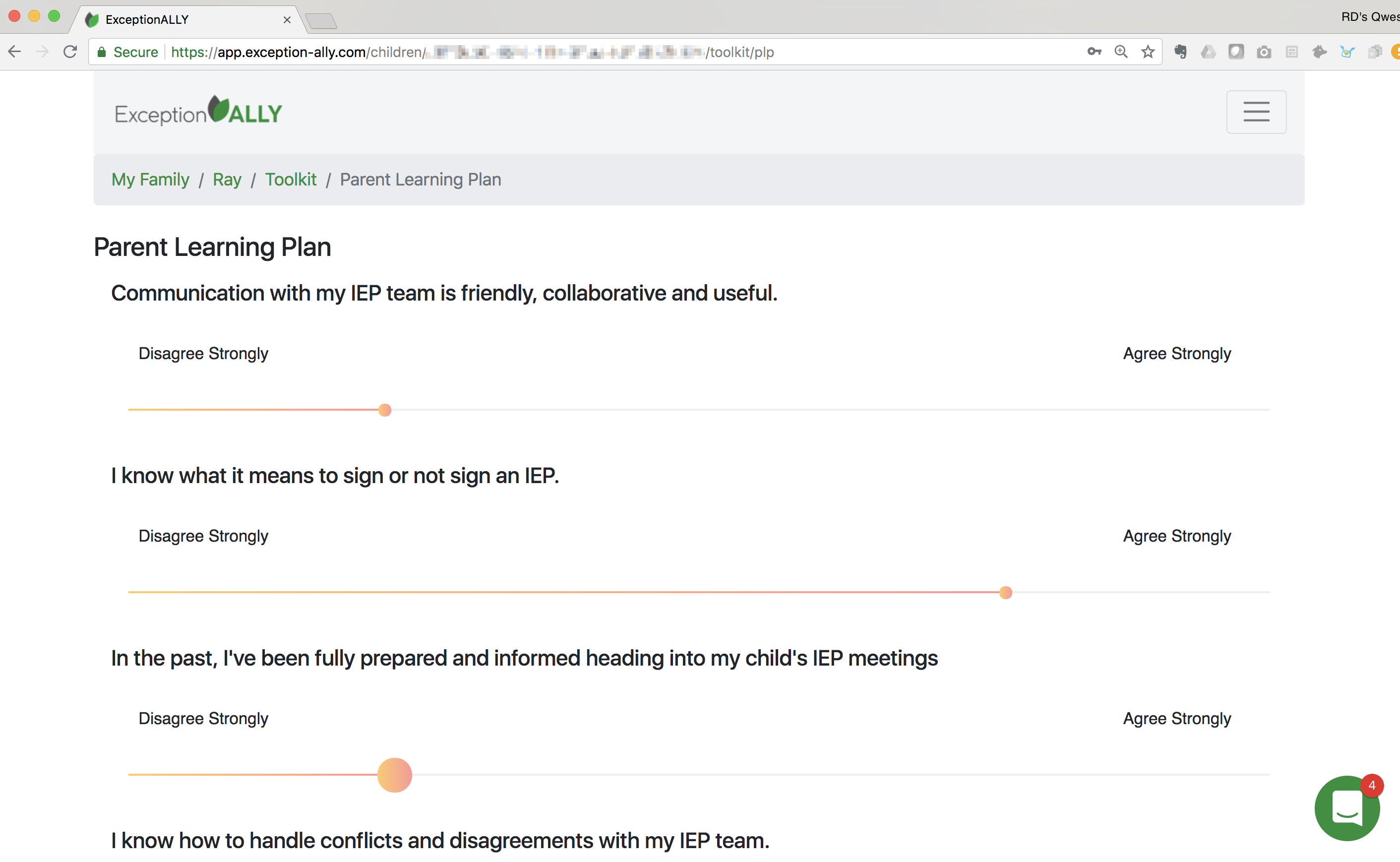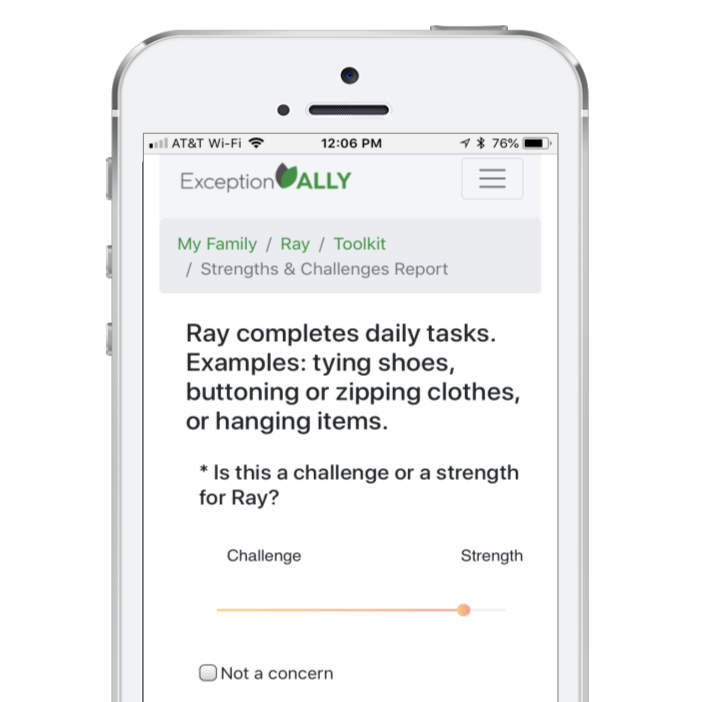ExceptionAlly helps parents navigate the special needs education labyrinth
The challenges faced by parents of kids with special needs are always unique, but in one way they are surely much alike: making sure the kids are getting what they need from schools is way harder than it ought to be. ExceptionAlly is a new startup that aims to help parents understand, organize and communicate all the info they need to make sure their child is getting the help they require.
“There are millions of parents out there trying to navigate special education. And parents with special needs should have access to more information than what one school tells them,” said ExceptionAlly co-founder and CEO Rayford Davis. “Those with the means actually hire special education attorneys, but those are few and far between. We thought, how can we democratize this? So we’re trying to do what TurboTax did for CPAs: deliver a large percentage of the value for a small percentage of the cost.”
The company just emerged from Y Combinator and is pursuing full deployment ahead of this school year, with a visibility push during the usual back-to-school dates. It’s still early days, but Davis tells me they already have thousands of users who are taking advantage of the free and paid aspects of the service.
Just because a parent has a kid with dyslexia, or a hearing impairment, or a physical disability, doesn’t mean they suddenly become an expert in what resources are out there for those kids — what’s required by law, what a school offers voluntarily and so on. Achieving fluency in these complex issues is a big ask on top of all the usual parental duties — and on top of that, parents and schools are often put in adversarial positions.
There are resources out there for parents, certainly, but they’re scattered and often require a great deal of effort on the parents’ part. So the first goal of the service is to educate and structure the parents’ information on the systems they’re dealing with.
 Based on information provided by the parent, such as their kid’s conditions or needs, and other information like school district, state and so on, the platform assists the parent in understanding both the condition itself, what they can expect from a school and what their rights are. It could be something as simple as moving a kid to the front row of a classroom to knowing how frequently the school is required to share reports on that kid’s progress.
Based on information provided by the parent, such as their kid’s conditions or needs, and other information like school district, state and so on, the platform assists the parent in understanding both the condition itself, what they can expect from a school and what their rights are. It could be something as simple as moving a kid to the front row of a classroom to knowing how frequently the school is required to share reports on that kid’s progress.
Parents rarely know the range of accommodations a school can offer, Davis said, and even the schools themselves might not know or properly explain what they can or must provide if asked.
For instance, an IEP, or individual education plan, and yearly goals are required for every student with special needs, along with meetings and progress reports. These are often skipped or, if not, done in a rote way that isn’t personalized.
Davis said that by helping parents collaborate with the school and teacher on IEPs and other facets of the process, they accomplish several things. First, the parent feels more confident and involved in their kid’s education, having brought something to the table. Second, less pressure is put on overworked teachers to produce these things in addition to everything else they have to do. And third, it either allows or compels schools to provide all the resources they have available.
Naturally, this whole process produces reams of documents: evaluations, draft plans, lesson lists, observations, reports and so on. “If you talk to any parent of a child with special needs, they’ll tell you how they have file cabinets full of paperwork,” Davis said.
ExceptionAlly will let you scan or send it all these docs, which it helps you organize into the various categories and find again should you need them. A search feature based on OCR processing of the text is in development and should be in place for the latter half of the coming school year, which Davis pointed out is really when it starts being necessary.
 That, he said, is when parents need to keep schools accountable. Being informed both on the kid’s progress and what the school is supposed to be doing lets the resulting process be collaborative rather than combative. But if the latter comes to pass, the platform has resources for parents to deploy to make sure the schools don’t dominate the power equation.
That, he said, is when parents need to keep schools accountable. Being informed both on the kid’s progress and what the school is supposed to be doing lets the resulting process be collaborative rather than combative. But if the latter comes to pass, the platform has resources for parents to deploy to make sure the schools don’t dominate the power equation.
“If things progress that way, there’s a ‘take action toolkit’ to develop communications with the school,” Davis said. Ideally you don’t want to be the parent threatening legal action or calling the principal at home. A timely reminder of what was agreed upon and a nudge to keep things on track keeps it positive. “It’s sort of a reminder that we should all be on ‘team kid,’ if you will,” he added.
Schools, unfortunately, have not shown themselves to be highly willing to collaborate.
“We spent about six months talking to over a hundred schools and districts. What we found was not a lot of energy to provide parents with any more information than what the school was already providing,” Davis explained.
The sad truth here is that many schools are already neck-deep in administrative woes, the teachers are overworked and have new responsibilities every year and the idea of volunteering for new ones doesn’t strike even the most well-intentioned schools as attractive. So instead, ExceptionAlly has focused on going directly to parents, who, confidently and well-armed, can take their case to the school on their own.
“Listen, we’re not getting ready to solve all of education today with our solution. We’re going to find that one mom who says, ‘I know there’s more out there, can someone help me find it?’ Yes, we’re going to help you do that,” he said. “Could that put pressure on the system? As long as it does it legally and lawfully, I am perfectly okay with advocating for a child and parents’ legal rights and putting pressure on the system to give them what they by law deserve.”
After the official launch ahead of this school year, the company plans to continue adding features. Rich text search is among them, and deeper understanding of the documents could both help automate storage and retrieval and also lead to new insights. At some point there will also be an optional program to submit a child’s information (anonymously, of course) to help create a database of what accommodations in which places and cases led to what outcomes — essentially aggregating information direct from the source.
ExceptionAlly has some free content to peruse if you’re curious whether it might be helpful for you or someone you know, and there are a variety of paid options should it seem like a good fit.
Powered by WPeMatico